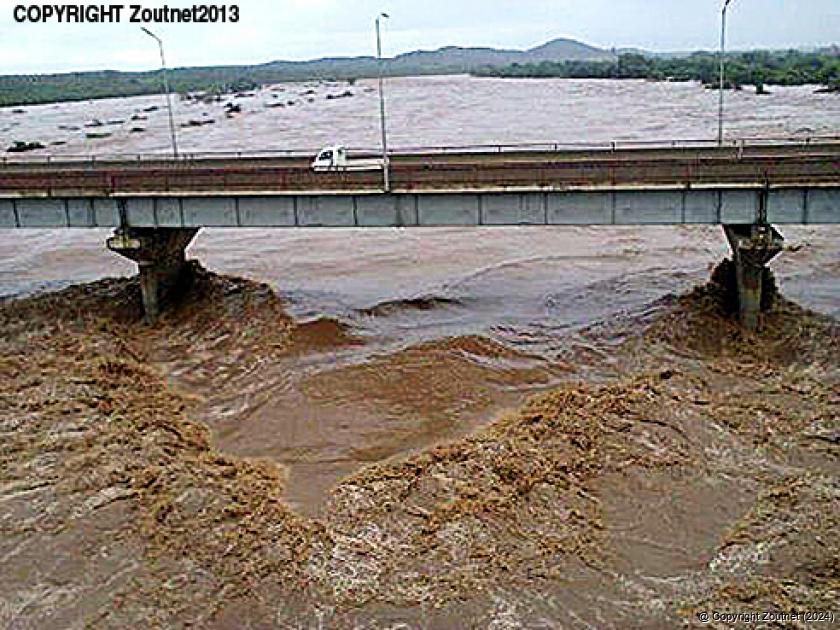

ADVERTISEMENT:

Floods cause halt in activities at border
South African and Zimbabwean border authorities at the Beit Bridge border post were forced to stop both vehicular and pedestrian traffic temporarily on Monday, after the Limpopo Bridge was nearly flooded, following heavy rains.
Authorities at the border post were forced to stop traffic after the flooded Limpopo River left the new Limpopo bridge inaccessible. The bridge was closed temporarily for three hours at midnight on Sunday and reopened at around 03:00. Border officials from both countries had to harmonise traffic control systems to ensure the safety of motorists. They also suspended movement of heavy duty vehicles over the bridge temporarily .
The old Limpopo Bridge was, however, safe for pedestrians, though the situation was monitored closely by the authorities.
The torrential rains also claimed the lives of three children, aged between four and nine years, when the houses they were sleeping in collapsed. At the time of our going to press, seven people had already died in the Beit Bridge district due to the rains that started last week. Two people drowned, one along the Bubi River and another one in a pond in the border town, while two adults, a husband and a wife, were swept away while trying to negotiate a flooded stream.
Forty-two more people were left homeless at Tshikwalakwala village after their huts were destroyed by heavy rains that hit the area over the weekend. The local Civil Protection Unit (CPU) also had to dispatch a helicopter to assist
stranded villagers. The CPU chairperson, Mr Simon Muleya, said the situation was terrible, adding that the helicopter would continue to assess the situation around the district. Muleya said they had also secured 30 tents as temporary shelter for the villagers.
News - Date: 25 January 2013

Recent Articles
-

'Pervert case' back in court
25 April 2024 By Victor Mukwevho -

Wetteloosheid op paaie wys die krake in plaaslike wetstoepassing
25 April 2024 By Andries van Zyl -

Bestuurder hardloop weg na hy deur heining bars
25 April 2024 By Karla van Zyl -

'Rambo' Tshivhase hailed as a brave, intelligent leader
25 April 2024 By Victor Mukwevho
Search for a story:

ADVERTISEMENT


Mashudu Netsianda
Mashudu Netsianda is our correspondent in Beit Bridge, Zimbabwe. He joined us in 2006, writing both local and international stories. He had worked for several Zimbabwean publications, as well as the Times of Swaziland. Mashudu received his training at the School of Mass Communication in Harare.

ADVERTISEMENT:

